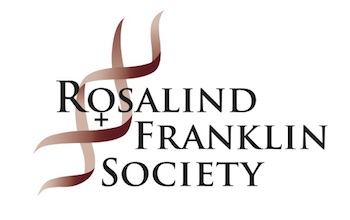RFS Briefings - February 8, 2019The February 2019 issue of RFS Briefings has some timely and encouraging updates on women in science. Of note in particular: 2019 Vilcek Foundation Prizes in Biomedical Science, Culinary Arts, Art History, vilcek.org, February 4, 2019 The Vilcek Prizes, awarded to immigrants whose work is of significant value to both their individual fields and to American society at large, were created “to spotlight the critical importance of foreign-born innovation to national advancement.” Two women were among this year’s winners in the biomedical sciences. Angelika Amon, born in Austria, was the recipient of the Vilcek Prize in Biomedical Science for her groundbreaking research on the molecular signals that regulate cell growth and division, and how errors in these processes contribute to birth defects and cancer. The Prize for Creative Promise in Biomedical Science was awarded to Jeanne T. Paz, born in Georgia (a former Soviet republic), for uncovering the neural basis of epileptic seizures, and for demonstrating possible methods of predicting and arresting seizures. Read more. As you may know, Dr. and Mrs. Vilcek are original and continuing supporters of RFS. Rosalind Franklin: Mars Rover Named After DNA Pioneer, bbc.com, February 7, 2019 The UK-assembled rover that will be sent to Mars in 2020 has been named for Rosalind Franklin, the DNA pioneer whose X-ray images allowed James Watson and Francis Crick to decipher its double-helix and win a Nobel Prize for this breakthrough. Franklin, who died at age 37, never received the recognition given to her male peers for this discovery not only because of her untimely death but because her role was not fairly acknowledged. Because this six-wheeled vehicle is designed to search for evidence of past or present life on the Red Planet, a name associated with a molecule fundamental to biology seems entirely appropriate. The name was chosen by a UK-led panel who reviewed 35,844 suggestions. Franklin’s sister, Jenifer Glynn, said that “’[Franklin] could never have imagined that over 60 years later there would be a rover sent to Mars bearing her name, but somehow that makes this project even more special.’” Read more. |
